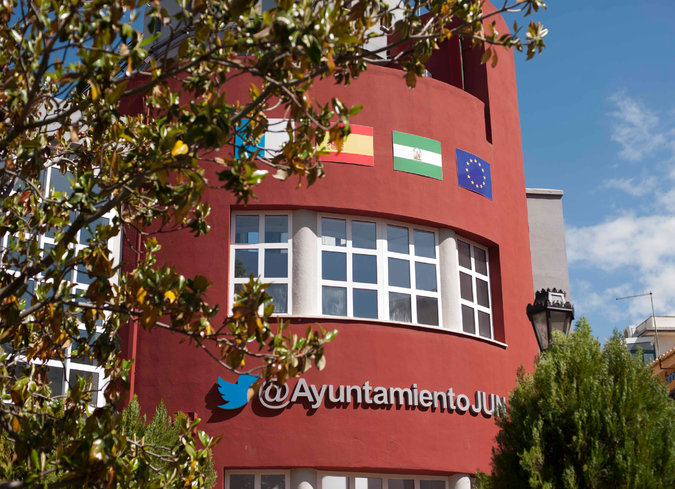JUN, Spain — When José Antonio Rodríguez Salas’s daughter,
Martina, was born in April, he — like many proud new parents — turned to social
media to share the news.
But Mr. Rodríguez Salas, the mayor of Jun, a small town outside
Granada in southern Spain, did not post a message through his own Twitter account.
Instead, he wrote a short message from a Twitter account he had created for his newborn, saying, “Acabo de nacer”— Martina RM (@martinajun) “ I’ve just been born”
To Mr. Rodríguez Salas’s more than 400,000 followers on
the social network, his actions came as no surprise. That is because the
Spanish politician has spent much of the last five years turning Jun, whose
population barely tops 3,500, into one of the most active users of Twitter
anywhere in the world.
For the town’s residents, more than half of whom have
Twitter accounts, their main way to communicate with local government officials
is now the social network. Need to see the local doctor? Send a quick Twitter
message to book an appointment. See something suspicious? Let Jun’s policeman
know with a tweet.
People in Jun can still use traditional methods, like
completing forms at the town hall, to obtain public services. But Mr. Rodríguez
Salas said that by running most of Jun’s communications through Twitter, he not
only has shaved on average 13 percent, or around $380,000, from the local
budget each year since 2011, but he also has created a digital democracy where
residents interact online almost daily with town officials.
“Everyone can speak to everyone else, whenever they want,”
said Mr. Rodríguez Salas in his office .“We are on Twitter because that’s where
the people are.”
While politicians regularly send messages on Twitter to
their millions of followers, Jun’s use of the social network is something
different.
By incorporating Twitter into every aspect of daily life —
even the local school’s lunch menu is sent out through social media — this
Spanish town has become a test bed for how cities may eventually use social
networks to offer public services.
“Jun is one of a group of islands of innovation in the
public sector,” said Arthur Mickoleit, a researcher who until recently was a
digital government adviser at the Organization for Economic Cooperation and
Development in Paris. “They’re tapping into social media to improve public
services.”
Jun’s embrace of Twitter did not happen overnight.
Mr. Rodríguez Salas, a career politician, was elected Jun’s
mayor in 2005 — the year before Twitter was founded — after serving as deputy
mayor. In 2011, he asked all town officials — from his deputy to the street
wçsweeper — to open accounts on Twitter and send messages about
their daily activities. The goal, he said, was to create greater accountability
and transparency over how Jun was run. Mr. Rodríguez Salas added that he chose
Twitter over Facebook because Twitter allowed quicker interactions.
Officials began with basic services like public maintenance,
letting people tweet when they saw a broken streetlight or a road that needed
cleaning.
Mr. Rodríguez Salas said such activities built good will
with residents, who at first opened Twitter accounts sporadically. But since
2013, the online activity has become almost universal as people saw how their
neighbors used the service.
María José Martínez, Jun’s information technology chief, also ran courses at the community center to teach Twitter 101, such as sending
direct messages and using the right hashtag during local campaigns.
One recent hashtag that residents have used is
#EndesaMeEstresa, or “Endesa You’re Stressing Me Out,” to highlight problems
with Endesa, a local utility. After the company was confronted with Jun’s angry
tweets, it quickly fixed the blackouts, Mr. Rodríguez Salas said. An Endesa
spokeswoman declined to comment.
Jun has not gone unnoticed by Twitter. Dick Costolo, the
company’s chief executive until 2015, visited last summer, leaving his
handprints in cement below an obelisk topped with Twitter’s logo of a blue
bird. The Massachusetts Institute of Technology, with funding from Twitter, has
analyzed how the town’s residents have benefited from using the social network.
Jun does not receive money from Twitter for using the service.
It’s unclear whether
lessons from Jun can be replicated on a larger scale, several analysts said,
while some question whether a publicly listed company like Twitter should be permitted
to help provide government services.


